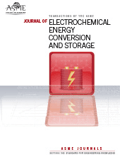
Journal of Electrochemical Energy Conversion and Storage
Scope & Guideline
Connecting Ideas for a Sustainable Energy Future
Introduction
Aims and Scopes
- Electrochemical Energy Storage Technologies:
The journal emphasizes research on various energy storage systems such as lithium-ion, sodium-ion, and redox flow batteries, exploring their performance, efficiency, and scalability. - Electrochemical Energy Conversion Systems:
This includes studies on fuel cells, including proton exchange membrane fuel cells and solid oxide fuel cells, focusing on their design, efficiency, and operational challenges. - Materials Science for Electrochemical Applications:
Research on advanced materials for electrodes, electrolytes, and separators is a core focus, emphasizing the development of nanomaterials, composites, and novel coatings to enhance performance. - Modeling and Simulation Techniques:
The journal publishes studies utilizing computational modeling and simulation to predict the behavior of electrochemical systems, aiding in the design and optimization of energy devices. - Thermal Management in Energy Systems:
Effective thermal management strategies for batteries and fuel cells are explored, addressing the impacts of temperature on performance and safety. - State of Charge and Health Estimation Methods:
Research on algorithms and methodologies for accurately estimating the state of charge and health of batteries is a significant area of focus, contributing to better management and longevity of energy storage systems.
Trending and Emerging
- Advanced Battery Technologies:
There is a significant increase in research on next-generation batteries, such as sodium-ion and lithium-sulfur batteries, driven by the need for sustainable and high-capacity alternatives to lithium-ion technology. - Artificial Intelligence and Machine Learning Applications:
The integration of AI and machine learning techniques for battery management systems, state estimation, and predictive maintenance is becoming a prevalent theme, showcasing the intersection of data science and electrochemical engineering. - Sustainability and Recycling in Battery Technologies:
Research focusing on the sustainability of battery materials and the development of recycling methods is on the rise, reflecting a growing concern for environmental impact and resource management. - Hybrid Energy Storage Systems:
The exploration of hybrid systems that combine different energy storage technologies, such as supercapacitors and batteries, is trending. This approach aims to optimize performance and efficiency for various applications. - Nanotechnology in Electrochemical Systems:
The use of nanomaterials to enhance the electrochemical performance of batteries and fuel cells is increasingly prevalent, indicating a push towards materials that offer superior properties at reduced sizes.
Declining or Waning
- Lead-Acid Battery Research:
Research focused on traditional lead-acid batteries has decreased as the field shifts towards lithium-ion and other advanced battery technologies that offer better performance and environmental benefits. - Basic Mechanistic Studies of Known Systems:
Studies that focus solely on established electrochemical systems without exploring novel materials or applications are appearing less frequently, indicating a trend towards more innovative and application-driven research. - Conventional Fuel Cell Technologies:
Interest in conventional fuel cell technologies has waned in favor of newer, more efficient systems and hybrid approaches that incorporate advanced materials or novel design strategies. - Static Thermal Management Solutions:
Research on static or conventional thermal management solutions has decreased, as there is a growing emphasis on dynamic and adaptive thermal management strategies that respond to real-time operating conditions.
Similar Journals
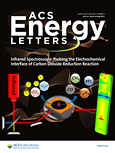
ACS Energy Letters
Transforming Energy Challenges into Innovative SolutionsACS Energy Letters, published by the American Chemical Society, is a prestigious peer-reviewed journal designed to disseminate innovative and impactful research in the multifaceted field of energy science. Since its inception in 2016, the journal has quickly ascended to a remarkable status, achieving Q1 rankings in critical categories including Chemistry (miscellaneous), Energy Engineering and Power Technology, Fuel Technology, Materials Chemistry, and Renewable Energy, Sustainability and the Environment as of 2023. With an emphasis on rigorous research methodologies and interdisciplinary collaboration, ACS Energy Letters serves as a vital platform for scholars, professionals, and students to explore cutting-edge research that addresses contemporary energy challenges. While maintaining a commitment to advancing knowledge without open access, it offers profound insights into sustainable practices and innovative solutions that are crucial for the future of energy systems globally. The journal's esteemed standing in the chemical and energy sectors underscores its significance, making it an essential resource for anyone invested in the advancement of energy technologies and sustainable practices.
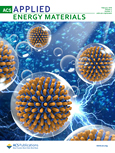
ACS Applied Energy Materials
Innovating the Future of Energy through ResearchACS Applied Energy Materials, published by the American Chemical Society, is a premier journal dedicated to the cutting-edge fields of energy materials, chemical engineering, and electrochemistry. With an impressive impact factor and consistently ranked in the Q1 category across multiple disciplines—including Chemical Engineering, Electrical and Electronic Engineering, and Materials Chemistry—this journal serves as a pivotal platform for researchers and professionals focused on innovative solutions for energy systems and materials science. Since its inception in 2018, ACS Applied Energy Materials has been committed to disseminating high-quality research that addresses pressing energy challenges, promoting sustainability and efficiency in various applications. Its competitive Scopus rankings reflect the journal's influence and relevance within the academic community, making it an essential resource for anyone looking to stay at the forefront of energy materials research.

Energy Material Advances
Fostering Knowledge for a Greener FutureEnergy Material Advances, published by the American Association for the Advancement of Science, stands at the forefront of energy research, showcasing groundbreaking studies in the realm of renewable energy, fuel technology, and materials science. With the journal's commitment to open access since 2020, it aims to democratize knowledge and foster innovation across a global community of researchers, professionals, and students. The journal boasts an impressive impact factor, placing it firmly within the Q1 category across multiple disciplines including Energy (miscellaneous), Fuel Technology, and Renewable Energy, Sustainability and the Environment, highlighting its significance in advancing scholarly discussions. In the latest Scopus rankings, Energy Material Advances ranks among the top 10% of journals in its field, affirming its role as a pivotal resource for current and emerging trends in energy materials. The journal is dedicated to facilitating collaborative efforts and inspiring novel approaches to the challenges posed by energy sustainability and technological advancement.
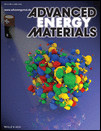
Advanced Energy Materials
Empowering Innovation in Energy SolutionsAdvanced Energy Materials is a leading academic journal published by WILEY-V C H VERLAG GMBH, focusing on the rapidly evolving fields of materials science and renewable energy technologies. With an impressive impact factor and recognition as a top-tier journal, it ranks within the Q1 category in both Materials Science (miscellaneous) and Renewable Energy, Sustainability and the Environment as of 2023. Spanning from 2011 to 2024, the journal serves as an essential platform for researchers, professionals, and students eager to explore groundbreaking advancements in energy materials, fostering innovative solutions to global sustainability challenges. The journal's authoritative content is supported by rigorous peer review, ensuring high-quality research contributes to the academic community and beyond. Located in Weinheim, Germany, Advanced Energy Materials stands at the forefront of scientific inquiry, making it an invaluable resource for those invested in the future of energy and materials science.

ACTA CHIMICA SINICA
Advancing the Frontiers of Chemical KnowledgeACTA CHIMICA SINICA, published by SCIENCE PRESS, is a distinguished peer-reviewed journal in the realm of Chemistry, specifically focusing on general and miscellaneous chemistry fields. Since its inception in 1982, the journal has consistently contributed to the advancement of chemical research in China and beyond, maintaining a reputable standing within the academic community, evidenced by its 2023 Scopus ranking of #197 out of 408 in its category. With a current impact factor placing it in the Q3 quartile, ACTA CHIMICA SINICA aims to disseminate innovative research findings, covering a wide spectrum of topics within the discipline. Although it is not an open-access journal, it offers various access options through institutional subscriptions, ensuring that its high-quality content is available to a broad audience. Researchers, professionals, and students alike will find this journal a vital resource for keeping abreast of developments in the field and for contributing their own findings to an engaged scientific community.
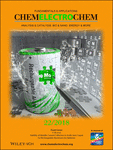
ChemElectroChem
Fostering collaboration in the realms of catalysis and electrochemistry.ChemElectroChem is a premier open-access journal published by WILEY-V C H VERLAG GMBH, focusing on the interdisciplinary fields of catalysis and electrochemistry. Established in 2014 and actively publishing until 2024, this journal boasts an impressive reputation, currently ranked in the Q2 category for both catalysis and electrochemistry according to the 2023 metrics. With an Scopus ranking placing it in the 74th percentile for Electrochemistry and 61st for Chemical Engineering and Catalysis, ChemElectroChem serves as an essential platform for researchers, professionals, and students dedicated to advancing knowledge and fostering innovation in these critical scientific domains. Since its transition to open access in 2023, the journal aims to maximize the dissemination of cutting-edge research and facilitate the exchange of ideas among global scholars, thereby enhancing the accessibility and impact of high-quality science within the community. For those engaged in the ever-evolving conversations around energy storage, conversion processes, and sustainable solutions, ChemElectroChem is an invaluable resource.
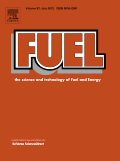
Fuel
Driving Research for a Sustainable TomorrowFuel is a premier international journal published by Elsevier Science Ltd, showcasing critical advancements and insights in the fields of chemical engineering, energy engineering, power technology, and organic chemistry. With a significant history dating back to 1922 and continuous publication from 1970 to 2025, Fuel holds an impressive position in the academic community, reflected in its top-tier rankings—Q1 in multiple categories including Fuel Technology and Chemical Engineering for the year 2023. This journal is dedicated to exploring innovative research and application of fuel technologies, driving forward the dialogue on sustainable energy solutions. Researchers and professionals alike will find Fuel to be an essential resource, providing access to high-impact articles that contribute to advancements in methodologies and applications, while navigating the complexities of global energy challenges.

Electrochemical Science Advances
Driving Progress in Electrochemical ApplicationsElectrochemical Science Advances, published by WILEY, is an esteemed Open Access journal that has been making significant contributions to the field of electrochemistry since its inception in 2021. With an ISSN of 2698-5977, this journal serves as a vital platform for researchers and practitioners looking to disseminate their findings on a diverse range of topics within the electrochemical sciences and related areas. The journal has achieved commendable rankings in the Scopus database, placing it in the 2nd quartile in Chemistry (miscellaneous) and the 3rd quartile in Electrochemistry, highlighting its relevance and growing influence in the academic community. As it converges from 2021 to 2024, Electrochemical Science Advances aims to foster collaboration and innovation, offering a vital resource for students, professionals, and researchers dedicated to advancing knowledge and technology in electrochemistry. Access to this cutting-edge research is straightforward, allowing for a comprehensive engagement with the latest advances in the field.

Electrochemical Energy Reviews
Illuminating Pathways to Sustainable Energy AdvancesElectrochemical Energy Reviews, published by SpringerNature, serves as an essential platform for the dissemination of cutting-edge research in the fields of electrochemistry, material science, and energy engineering. With an impressive impact factor and ranked in the Q1 category across multiple disciplines including Chemical Engineering and Energy Technology, this journal highlights its commitment to advancing knowledge and innovation within the energy sector. Operating since 2018, the journal not only provides a valuable resource for researchers and professionals but also invites contributions from students and emerging scholars interested in the pivotal role of electrochemical processes in sustainable energy solutions. Published in Germany and widely accessible to the global research community, Electrochemical Energy Reviews is an indispensable reference for those keen on exploring the future of energy technologies.
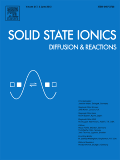
SOLID STATE IONICS
Exploring the dynamics of solid state materials.SOLID STATE IONICS, published by Elsevier, is a prestigious academic journal dedicated to the field of solid state ionics. Since its inception in 1979, the journal has steadily contributed to the advancement of knowledge regarding ionic conduction in solid materials, which is paramount in a multitude of applications, from energy storage systems to sensor technology. As evidenced by its strong ranking in 2023—positioned in the Q2 quartile across Chemistry, Condensed Matter Physics, and Materials Science—SOLID STATE IONICS is recognized as a vital resource for researchers, professionals, and students alike, providing high-quality peer-reviewed articles that foster scientific collaboration and innovation. Its ISSN is 0167-2738 and E-ISSN is 1872-7689, with an ongoing publication schedule aimed at featuring cutting-edge research through 2024. As an essential conduit for the dissemination of important findings in the field, researchers seeking to publish their work or explore new frontiers in solid state ionics will find this journal an invaluable resource.